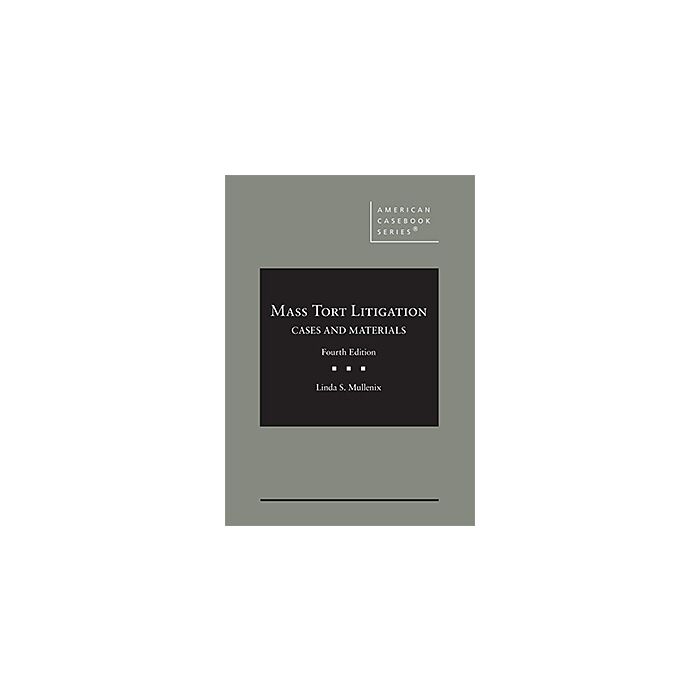Order by phone 1-866-808-5635 (M-F 10am - 4pm CST) Help/FAQs / LawRewards / Gift Certificates / Sell Us Your Law School Textbooks
-
Attorney
-
A-B
- A
- Accounting & Finance
- Administrative Law
- Admiralty Law
- Age & Gender Law
- Agency & Partnership Law
- Agricultural Law
- Alternative Dispute Resolution
- Animal Law
- Antitrust Law
- Appellate Advocacy
- Arbitration Law
- Art Law
- Audio Items
- Aviation & Space Law
- B
- Banking Law
- Bankruptcy Law
- Bar Exam Preparation
- Biotech Law
- Business Associations & Organizations
- Business Law
-
C-D
- C
- Civil Law
- Civil Procedure Law
- Civil Rights Law
- Class Action Law
- Commercial Law
- Commercial Paper
- Communications Law
- Community Property Law
- Comparative Law
- Conflict of Laws
- Constitutional Law
- Construction Law
- Consumer Law
- Contract Law
- Copyright Law
- Corporate Finance Law
- Corporate Tax Law
- Corporations Law
- Criminal Justice
- Criminal Law
- Criminal Procedure
- D
- Debtor-Creditor Law
- Defamation Law
- Disability Law
- Discrimination Law
- Divorce Law
- Domestic Relations Law
- Download Items
- Drug Law
-
E-F
- E
- Economics & Law
- Education Law
- Elder Law
- Election Law
- Employee Benefits & ERISA Law
- Employment Law
- Energy Law
- Entertainment Law
- Environmental Law
- Estate & Gift Tax Law
- Estates Law
- Evidence Law
- F
- Family Law
- Federal Courts & Jurisdiction
- Federal Income Tax Law
- Finance Law
- First Amendment Law
- First Year Law School Guides
- Flashcard Items
- Franchise Law
- Future Interests
-
G-J
- G
- Gambling Law
- General Legal Non-Fiction
- General Legal Reference
- Governmental Law
- Gun Law
- H
- Health & Health Care Law
- History & Law
- Housing Law
- Human Rights Law
- I
- Immigration Law
- Injunctions
- Insurance Law
- Intellectual Property Law
- International Business Transactions
- International Law
- Internet Law & Cyber Law
- J
- Jurisprudence
- Jury
- Juvenile Law
-
L-M
- L
- Labor Law
- Land Use Law
- Landlord & Tenant Law
- Law School Exam Guides
- Lawyering Skills
- Legal Career Guides
- Legal Dictionaries
- Legal Ethics
- Legal Malpractice
- Legal Philosophy
- Legal Practice Management
- Legal Research
- Legal Writing
- Legislation Law
- Litigation Law
- LSAT Exam Preparation
- M
- Maritime Law
- Mass Media Law
- Mediation Law
- Medical Liability Law
- Mergers & Acquisitions
- Military & Nat'l Security Law
- MPRE Exam Preparation
- Municipal Law
- Music Law
-
N-P
- N
- Native American Law
- Natural Resources Law
- Negotiable Instrument Law
- Non-Profit Organization Law
- O
- Oil & Gas Law
- P
- Partnerships & LLCs
- Paralegal Titles
- Patent Law
- Payment Systems Law
- Penal Law
- Personal Injury Law
- Pre-Law School Preparation
- Pre-Trial
- Privacy Law
- Probate Law
- Products Liability Law
- Professional Responsibility
- Property Law
-
R-Z
- R
- Real Estate Law
- Regulatory Law
- Religion & Law
- Remedies Law
- S
- Sales & Leases of Goods
- Secured Transactions
- Securities Regulation
- Sexual Orientation Law
- Software Items
- Sports Law
- T
- Transportation Law
- Tax Law
- Technology Law
- Tort Law
- Toxic Tort Law
- Trade Law
- Trademark Law
- Travel Law
- Trial Advocacy
- Trusts
- Trusts Law
- U
- U.C.C.
- W
- White Collar Crime
- Wills
- Z
- Zoning Law
-
A-B
-
Do-It-Yourself Law
-
A-B
- A
- Accounting & Finance
- Administrative Law
- Admiralty Law
- Age & Gender Law
- Agency & Partnership Law
- Alternative Dispute Resolution
- Animal Law
- Antitrust Law
- Appellate Advocacy
- Arbitration Law
- Art Law
- Audio Items
- Aviation Law
- B
- Banking Law
- Bankruptcy Law
- Bar Exam Preparation
- Biotech Law
- Business Associations & Organizations
- Business Law
-
C-D
- C
- Civil Procedure Law
- Civil Rights Law
- Class Action Law
- Commercial Law
- Commercial Paper
- Communications Law
- Community Property Law
- Comparative Law
- Conflict of Laws
- Constitutional Law
- Construction Law
- Consumer Law
- Contract Law
- Copyright Law
- Corporate Finance Law
- Corporate Tax Law
- Corporations Law
- Criminal Justice
- Criminal Law
- Criminal Procedure
- D
- Debtor-Creditor Law
- Disability Law
- Discrimination Law
- Divorce Law
- Domestic Relations Law
- Download Items
-
E-F
- E
- Economics & Law
- Education Law
- Elder Law
- Employee Benefits & ERISA Law
- Employment Law
- Energy Law
- Entertainment Law
- Environmental Law
- Estate & Gift Tax Law
- Estates Law
- Evidence Law
- F
- Family Law
- Federal Courts & Jurisdiction
- Federal Income Tax Law
- Finance Law
- First Amendment Law
- First Year Law School Guides
- Flashcard Items
- Franchise Law
- Future Interests
-
G-J
- G
- Gambling Law
- General Legal Non-Fiction
- General Legal Reference
- Governmental Law
- H
- Health & Health Care Law
- History & Law
- Human Rights Law
- I
- Immigration Law
- Injunctions
- Insurance Law
- Intellectual Property Law
- International Business Transactions
- International Law
- Internet Law & Cyber Law
- J
- Jurisprudence
- Juvenile Law
-
L-M
- L
- Labor Law
- Land Use Law
- Landlord & Tenant Law
- Law School Exam Guides
- Lawyering Skills
- Legal Career Guides
- Legal Dictionaries
- Legal Ethics
- Legal Philosophy
- Legal Practice Management
- Legal Research
- Legal Writing
- Legislation Law
- Litigation Law
- LSAT Exam Preparation
- M
- Maritime Law
- Mass Media Law
- Mediation Law
- Medical Liability Law
- Mergers & Acquisitions
- Military & Nat'l Security Law
- MPRE Exam Preparation
- Municipal Law
- Music Law
-
N-P
- N
- Native American Law
- Natural Resources Law
- Negotiable Instrument Law
- Non-Profit Organization Law
- O
- Oil & Gas Law
- P
- Partnerships & LLCs
- Patent Law
- Payment Systems Law
- Penal Law
- Personal Injury Law
- Pre-Law School Preparation
- Pre-Trial
- Privacy Law
- Probate Law
- Products Liability Law
- Professional Responsibility
- Property Law
-
R-Z
- R
- Real Estate Law
- Religion & Law
- Remedies Law
- S
- Sales & Leases of Goods
- Secured Transactions
- Securities Regulation
- Sexual Orientation Law
- Software Items
- Sports Law
- T
- Tax Law
- Technology Law
- Tort Law
- Toxic Tort Law
- Trade Law
- Trademark Law
- Travel Law
- Trial Advocacy
- Trusts
- Trusts Law
- U
- U.C.C.
- W
- White Collar Crime
- Wills
- Z
- Zoning Law
-
A-B
-
Law Student
-
A-B
- A
- Accounting & Finance
- Administrative Law
- Admiralty Law
- Age & Gender Law
- Agency & Partnership Law
- Agricultural Law
- Alternative Dispute Resolution
- Animal Law
- Antitrust Law
- Appellate Advocacy
- Arbitration Law
- Art Law
- Audio Items
- Aviation & Space Law
- B
- Banking Law
- Bankruptcy Law
- Bar Exam Preparation
- Biotech Law
- Business Associations & Organizations
- Business Law
-
C-D
- C
- Civil Law
- Civil Procedure Law
- Civil Rights Law
- Class Action Law
- Commercial Law
- Commercial Paper
- Communications Law
- Community Property Law
- Comparative Law
- Conflict of Laws
- Constitutional Law
- Construction Law
- Consumer Law
- Contract Law
- Copyright Law
- Corporate Finance Law
- Corporate Tax Law
- Corporations Law
- Criminal Justice
- Criminal Law
- Criminal Procedure
- D
- Debtor-Creditor Law
- Defamation Law
- Disability Law
- Discrimination Law
- Divorce Law
- Domestic Relations Law
- Download Items
- Drug Law
-
E-F
- E
- Economics & Law
- Education Law
- Elder Law
- Election Law
- Employee Benefits & ERISA Law
- Employment Law
- Energy Law
- Entertainment Law
- Environmental Law
- Estate & Gift Tax Law
- Estates Law
- Evidence Law
- F
- Family Law
- Federal Courts & Jurisdiction
- Federal Income Tax Law
- Finance Law
- First Amendment Law
- First Year Law School Guides
- Flashcard Items
- Franchise Law
- Future Interests
-
G-J
- G
- Gambling Law
- General Legal Non-Fiction
- General Legal Reference
- Governmental Law
- Gun Law
- H
- Health & Health Care Law
- History & Law
- Human Rights Law
- Housing Law
- I
- Immigration Law
- Injunctions
- Insurance Law
- Intellectual Property Law
- International Business Transactions
- International Law
- Internet Law & Cyber Law
- J
- Jurisprudence
- Jury
- Juvenile Law
-
L-M
- L
- Labor Law
- Land Use Law
- Landlord & Tenant Law
- Law School Exam Guides
- Lawyering Skills
- Legal Career Guides
- Legal Dictionaries
- Legal Ethics
- Legal Malpractice
- Legal Philosophy
- Legal Practice Management
- Legal Research
- Legal Writing
- Legislation Law
- Litigation Law
- LSAT Exam Preparation
- M
- Maritime Law
- Mass Media Law
- Mediation Law
- Medical Liability Law
- Mergers & Acquisitions
- Military & Nat'l Security Law
- MPRE Exam Preparation
- Municipal Law
- Music Law
-
N-P
- N
- Native American Law
- Natural Resources Law
- Negotiable Instrument Law
- Non-Profit Organization Law
- O
- Oil & Gas Law
- P
- Paralegal Titles
- Partnerships & LLCs
- Patent Law
- Payment Systems Law
- Penal Law
- Personal Injury Law
- Pre-Law School Preparation
- Pre-Trial
- Privacy Law
- Probate Law
- Products Liability Law
- Professional Responsibility
- Property Law
-
R-Z
- R
- Real Estate Law
- Regulatory Law
- Religion & Law
- Remedies Law
- S
- Sales & Leases of Goods
- Secured Transactions
- Securities Regulation
- Sexual Orientation Law
- Software Items
- Sports Law
- T
- Tax Law
- Technology Law
- Tort Law
- Toxic Tort Law
- Trade Law
- Trademark Law
- Transportation Law
- Travel Law
- Trial Advocacy
- Trusts
- Trusts Law
- U
- U.C.C.
- W
- White Collar Crime
- Wills
- Z
- Zoning Law
-
A-B
-
Paralegal
-
A-B
- A
- Accounting & Finance
- Administrative Law
- Admiralty Law
- Age & Gender Law
- Agency & Partnership Law
- Alternative Dispute Resolution
- Animal Law
- Antitrust Law
- Appellate Advocacy
- Arbitration Law
- Art Law
- Audio Items
- Aviation Law
- B
- Banking Law
- Bankruptcy Law
- Bar Exam Preparation
- Biotech Law
- Business Associations & Organizations
- Business Law
-
C-D
- C
- Civil Procedure Law
- Civil Rights Law
- Class Action Law
- Commercial Law
- Commercial Paper
- Communications Law
- Community Property Law
- Comparative Law
- Conflict of Laws
- Constitutional Law
- Construction Law
- Consumer Law
- Contract Law
- Copyright Law
- Corporate Finance Law
- Corporate Tax Law
- Corporations Law
- Criminal Justice
- Criminal Law
- Criminal Procedure
- D
- Debtor-Creditor Law
- Disability Law
- Discrimination Law
- Divorce Law
- Domestic Relations Law
- Download Items
-
E-F
- E
- Economics & Law
- Education Law
- Elder Law
- Employee Benefits & ERISA Law
- Employment Law
- Energy Law
- Entertainment Law
- Environmental Law
- Estate & Gift Tax Law
- Estates Law
- Evidence Law
- F
- Family Law
- Federal Courts & Jurisdiction
- Federal Income Tax Law
- Finance Law
- First Amendment Law
- First Year Law School Guides
- Flashcard Items
- Franchise Law
- Future Interests
-
G-J
- G
- Gambling Law
- General Legal Non-Fiction
- General Legal Reference
- Governmental Law
- H
- Health & Health Care Law
- History & Law
- Human Rights Law
- I
- Immigration Law
- Injunctions
- Insurance Law
- Intellectual Property Law
- International Business Transactions
- International Law
- Internet Law & Cyber Law
- J
- Jurisprudence
- Juvenile Law
-
L-M
- L
- Labor Law
- Land Use Law
- Landlord & Tenant Law
- Law School Exam Guides
- Lawyering Skills
- Legal Career Guides
- Legal Dictionaries
- Legal Ethics
- Legal Philosophy
- Legal Practice Management
- Legal Research
- Legal Writing
- Legislation Law
- Litigation Law
- LSAT Exam Preparation
- M
- Maritime Law
- Mass Media Law
- Mediation Law
- Medical Liability Law
- Mergers & Acquisitions
- Military & Nat'l Security Law
- MPRE Exam Preparation
- Municipal Law
- Music Law
-
N-P
- N
- Native American Law
- Natural Resources Law
- Negotiable Instrument Law
- Non-Profit Organization Law
- O
- Oil & Gas Law
- P
- Partnerships & LLCs
- Patent Law
- Payment Systems Law
- Penal Law
- Personal Injury Law
- Pre-Law School Preparation
- Pre-Trial
- Privacy Law
- Probate Law
- Products Liability Law
- Professional Responsibility
- Property Law
-
R-Z
- R
- Real Estate Law
- Religion & Law
- Remedies Law
- S
- Sales & Leases of Goods
- Secured Transactions
- Securities Regulation
- Sexual Orientation Law
- Software Items
- Sports Law
- T
- Tax Law
- Technology Law
- Tort Law
- Toxic Tort Law
- Trade Law
- Trademark Law
- Travel Law
- Trial Advocacy
- Trusts
- Trusts Law
- U
- U.C.C.
- W
- White Collar Crime
- Wills
- Z
- Zoning Law
-
A-B
-
Pre-Law Student
-
A-B
- A
- Accounting & Finance
- Administrative Law
- Admiralty Law
- Age & Gender Law
- Agency & Partnership Law
- Alternative Dispute Resolution
- Animal Law
- Antitrust Law
- Appellate Advocacy
- Arbitration Law
- Art Law
- Audio Items
- Aviation Law
- B
- Banking Law
- Bankruptcy Law
- Bar Exam Preparation
- Biotech Law
- Business Associations & Organizations
- Business Law
-
C-D
- C
- Civil Procedure Law
- Civil Rights Law
- Class Action Law
- Commercial Law
- Commercial Paper
- Communications Law
- Community Property Law
- Comparative Law
- Conflict of Laws
- Constitutional Law
- Construction Law
- Consumer Law
- Contract Law
- Copyright Law
- Corporate Finance Law
- Corporate Tax Law
- Corporations Law
- Criminal Justice
- Criminal Law
- Criminal Procedure
- D
- Debtor-Creditor Law
- Disability Law
- Discrimination Law
- Divorce Law
- Domestic Relations Law
- Download Items
-
E-F
- E
- Economics & Law
- Education Law
- Elder Law
- Employee Benefits & ERISA Law
- Employment Law
- Energy Law
- Entertainment Law
- Environmental Law
- Estate & Gift Tax Law
- Estates Law
- Evidence Law
- F
- Family Law
- Federal Courts & Jurisdiction
- Federal Income Tax Law
- Finance Law
- First Amendment Law
- First Year Law School Guides
- Flashcard Items
- Franchise Law
- Future Interests
-
G-J
- G
- Gambling Law
- General Legal Non-Fiction
- General Legal Reference
- Governmental Law
- H
- Health & Health Care Law
- History & Law
- Human Rights Law
- I
- Immigration Law
- Injunctions
- Insurance Law
- Intellectual Property Law
- International Business Transactions
- International Law
- Internet Law & Cyber Law
- J
- Jurisprudence
- Juvenile Law
-
L-M
- L
- Labor Law
- Land Use Law
- Landlord & Tenant Law
- Law School Exam Guides
- Lawyering Skills
- Legal Career Guides
- Legal Dictionaries
- Legal Ethics
- Legal Philosophy
- Legal Practice Management
- Legal Research
- Legal Writing
- Legislation Law
- Litigation Law
- LSAT Exam Preparation
- M
- Maritime Law
- Mass Media Law
- Mediation Law
- Medical Liability Law
- Mergers & Acquisitions
- Military & Nat'l Security Law
- MPRE Exam Preparation
- Municipal Law
- Music Law
-
N-P
- N
- Native American Law
- Natural Resources Law
- Negotiable Instrument Law
- Non-Profit Organization Law
- O
- Oil & Gas Law
- P
- Partnerships & LLCs
- Patent Law
- Payment Systems Law
- Penal Law
- Personal Injury Law
- Pre-Law School Preparation
- Pre-Trial
- Privacy Law
- Probate Law
- Products Liability Law
- Professional Responsibility
- Property Law
-
R-Z
- R
- Real Estate Law
- Religion & Law
- Remedies Law
- S
- Sales & Leases of Goods
- Secured Transactions
- Securities Regulation
- Sexual Orientation Law
- Software Items
- Sports Law
- T
- Tax Law
- Technology Law
- Tort Law
- Toxic Tort Law
- Trade Law
- Trademark Law
- Travel Law
- Trial Advocacy
- Trusts
- Trusts Law
- U
- U.C.C.
- W
- White Collar Crime
- Wills
- Z
- Zoning Law
-
A-B
- Menu
- Account
-
Attorney
-
A-B
- A
- B
-
C-D
-
C
- Civil Law
- Civil Procedure Law
- Civil Rights Law
- Class Action Law
- Commercial Law
- Commercial Paper
- Communications Law
- Community Property Law
- Comparative Law
- Conflict of Laws
- Constitutional Law
- Construction Law
- Consumer Law
- Contract Law
- Copyright Law
- Corporate Finance Law
- Corporate Tax Law
- Corporations Law
- Criminal Justice
- Criminal Law
- Criminal Procedure
- D
-
C
-
E-F
- E
- F
-
G-J
- G
- H
- I
- J
-
L-M
- L
- M
-
N-P
- N
- O
- P
-
R-Z
- R
- S
- T
- U
- W
- Z
-
A-B
-
Do-It-Yourself Law
-
A-B
- A
- B
-
C-D
-
C
- Civil Procedure Law
- Civil Rights Law
- Class Action Law
- Commercial Law
- Commercial Paper
- Communications Law
- Community Property Law
- Comparative Law
- Conflict of Laws
- Constitutional Law
- Construction Law
- Consumer Law
- Contract Law
- Copyright Law
- Corporate Finance Law
- Corporate Tax Law
- Corporations Law
- Criminal Justice
- Criminal Law
- Criminal Procedure
- D
-
C
-
E-F
- E
- F
-
G-J
- G
- H
- I
- J
-
L-M
- L
- M
-
N-P
- N
- O
- P
-
R-Z
- R
- S
- T
- U
- W
- Z
-
A-B
-
Law Student
-
A-B
- A
- B
-
C-D
-
C
- Civil Law
- Civil Procedure Law
- Civil Rights Law
- Class Action Law
- Commercial Law
- Commercial Paper
- Communications Law
- Community Property Law
- Comparative Law
- Conflict of Laws
- Constitutional Law
- Construction Law
- Consumer Law
- Contract Law
- Copyright Law
- Corporate Finance Law
- Corporate Tax Law
- Corporations Law
- Criminal Justice
- Criminal Law
- Criminal Procedure
- D
-
C
-
E-F
- E
- F
-
G-J
- G
- H
- I
- J
-
L-M
- L
- M
-
N-P
- N
- O
- P
-
R-Z
- R
- S
- T
- U
- W
- Z
-
A-B
-
Paralegal
-
A-B
- A
- B
-
C-D
-
C
- Civil Procedure Law
- Civil Rights Law
- Class Action Law
- Commercial Law
- Commercial Paper
- Communications Law
- Community Property Law
- Comparative Law
- Conflict of Laws
- Constitutional Law
- Construction Law
- Consumer Law
- Contract Law
- Copyright Law
- Corporate Finance Law
- Corporate Tax Law
- Corporations Law
- Criminal Justice
- Criminal Law
- Criminal Procedure
- D
-
C
-
E-F
- E
- F
-
G-J
- G
- H
- I
- J
-
L-M
- L
- M
-
N-P
- N
- O
- P
-
R-Z
- R
- S
- T
- U
- W
- Z
-
A-B
-
Pre-Law Student
-
A-B
- A
- B
-
C-D
-
C
- Civil Procedure Law
- Civil Rights Law
- Class Action Law
- Commercial Law
- Commercial Paper
- Communications Law
- Community Property Law
- Comparative Law
- Conflict of Laws
- Constitutional Law
- Construction Law
- Consumer Law
- Contract Law
- Copyright Law
- Corporate Finance Law
- Corporate Tax Law
- Corporations Law
- Criminal Justice
- Criminal Law
- Criminal Procedure
- D
-
C
-
E-F
- E
- F
-
G-J
- G
- H
- I
- J
-
L-M
- L
- M
-
N-P
- N
- O
- P
-
R-Z
- R
- S
- T
- U
- W
- Z
-
A-B
Order by phone 1-866-808-5635 (M-F 9am-5pm CST)
Mass Tort Litigation: Cases and Materials (American Casebook Series)
- Edition : 4th ed., 2023
- Author(s) : Mullenix
Log in or create an account to get 284 LawReward points on this purchase!
-
Mass Tort Litigation: Cases and Materials (American Casebook Series)
- ISBN: 9781684679584
- SKU: 93995
- Condition: New
- Format: Hardcover
$284.16
List Price: $296.00
Hurry! Only 1 left!
- This item ships within one business day.
-
Mass Tort Litigation: Cases and Materials (American Casebook Series) (Used)
- ISBN: 9781684679584
- SKU: 93995U
- Condition: Used
- Format: Hardcover
- No more than 25% of the total pages in the book have writing or highlighting and existing writing and highlighting does not obscure text.
- All bindings are intact, with no split bindings.
-
Mass Tort Litigation: Cases and Materials (American Casebook Series) (Rental)
- ISBN: 9781684679584
- SKU: 93995R
- Condition: New
- Format: Hardcover
- This item ships within one business day.
- A pristine, unused rental copy of the textbook (which must be returned by the end of your course semester), with no highlighting or writing restrictions,
- Immediate, lifetime access to the digital copy of that edition of the textbook, and
- Access to the Interactive Study Center where you can utilize outlining tools, self-assessment tools that will show you your strengths and weaknesses, and online study aids including curated excerpts and practice questions from leading study aids such as Examples & Explanations and Glannon Guides.
What condition are our used books in?
We offer only high‐quality used textbooks.
All of the used textbooks that we offer adhere to the following quality standards:
If you have any question about any used textbook for sale on our website, please call us at 1‐866‐808‐5635 (M‐F 10am‐4pm CST) and we may be able to inspect the books for you prior to purchase.
What is a Connected Casebook?
In an effort to offer more affordable, and powerful, law school textbook options to law students, Aspen Publishers/Wolters Kluwer Legal Education is now offering Connected Casebook versions of some of their textbook titles. With Connected Casebook versions, you get all of this:
What is the benefit of a Connected Casebook?
With Connected Casebook titles, you really do get more for less! Connected Casebook items are discounted up to 25% off of the price of their respective non-Connected Casebook versions.
Want more info on Connected Casebook? Click here!
This fourth edition to the casebook reflects the rapidly changing legal landscape of mass tort litigation. This new edition also reflects the wisdom gained from teaching the text over many years and incorporates changes that hopefully render the subject of mass tort litigation more comprehensible to students. Consequently, this new casebook edition reorganizes the chapters—and the content of many chapters—to provide both a chronological as well as thematic approach to understanding the landscape of evolving mass tort litigation. The passage of time has also suggested that some decisional law is of subsidiary importance. In addition, some materials in the third edition redundantly explored mass tort concepts presented elsewhere in the text. These ancillary or redundant cases have been excised from this new edition. This new fourth edition integrates recent decisions setting forth new concepts in mass tort litigation in the revised text.
The introductory chapters have been reorganized to introduce students to the seminal cases in mass tort litigation and the jurisprudential debate that undergirds all policy debates about the wisdom of aggregating tort claims into group litigation. The following chapters have consolidated all the materials relating to ethical issues in mass tort litigation including client solicitation, the “first plaintiff” problem, adequacy of representation, fiduciary duties, and the aggregate settlement rule in class and non-class contexts. The chapter sets forth two substantial decisions where attorneys have been sanctioned for various professional misconduct in the settlement of MDL non-class aggregate litigation. The materials on class certification have been revised to focus on the recent departure of the timing of class certification from previous practice of back-end judicial class certification to courts’ new role in provisionally certifying a mass tort settlement class at the front end of litigation. New chapters have been added addressing recent developments, as indicated below.
What’s New in the Fourth Edition
This new fourth edition includes the 2018 amended Rule 23, with its extensive amendment of the Rule 23(e) settlement provisions. The chapter on modern decisional law relating to settlement classes after the Supreme Court’s decisions in Amchem Prods. v. Windsor and Ortiz v. Fibreboard has added an excerpt from a 2020 Northern District of California decision, In re: Roundup Prods. Liab. Litig., to prompt a discussion of the role of “provisional certification” of settlement classes under modern practice.
An entirely new chapter has been added dealing with the “negotiation class”, including the Sixth Circuit’s repudiation of Judge Aaron Polster’s certification in In re: National Prescription Opiate Litigation (6th Cir. 2020). Included is an excerpt from Judge Karen Nelson Moore’s dissenting opinion focusing on the legitimacy of the negotiation class as a logical development of the settlement class concept, authorized by the class action rule’s text and history of class litigation.
The chapter on innovative approaches to mass tort litigation has added a new subchapter presenting the emerging mass tort litigation theory of public nuisance. It includes an excerpt from the Oklahoma Supreme Court’s decision in Hunter v. Johnson & Johnson (2021), rejecting the use of a public nuisance theory in Oklahoma state litigation over opioid harms. The Oklahoma Supreme Court decision does a capable job of setting forth the concept of mass torts as public nuisance. This decision might be contrasted with the national opiate MDL, also predicated on public nuisance theories, as resulting in harms to governmental entities. These materials afford a good opportunity to discuss emerging theories to support mass tort claims and relief; they can be used as a springboard to explore use of the public nuisance approach in other possible mass torts, such as gun violence and resulting injuries.
A new subchapter on MDL litigation has been added that explores the role of Lone Pine orders in resolving MDL litigation. This subchapter focuses on the Third Circuit’s decision in Hamer v. Livanova v. Deutschland Gmbh (3d Cir. 2021), discussing a claimant’s non-compliance with an MDL Lone Pine order in MDL litigation resulting from injuries from open heart surgery. The decision affords a good opportunity to explore the role of Lone Pine orders in resolving MDL mass tort litigation and the authority of an MDL judge to issue such orders.
Related Products
-
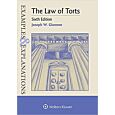
Examples & Explanations: Torts
List Price $77.95 Our Low Price $54.57 -
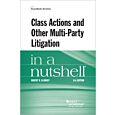
Law in a Nutshell: Class Actions and other Multiparty Litigation
List Price $62.00 Our Low Price $59.52 -
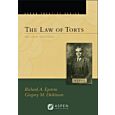
The Law of Torts (Aspen Treatise Series)
List Price $128.00 Our Low Price $125.44 -
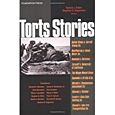
Torts Stories
$72.00

